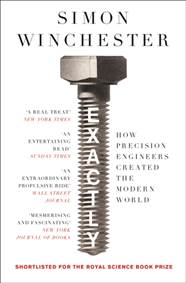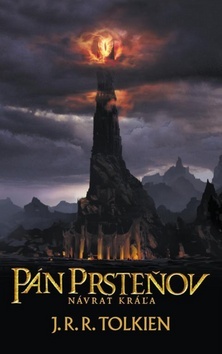Exactly
Knihu kúpite v
1 e-shope
od
14,05 €
Knihyprekazdeho.sk
14,05 €
Skladom
(dodanie do 3 dní)
Krátky popis
SHORTLISTED FOR THE ROYAL SOCIETY SCIENCE BOOK PRIZE 2018
Bestselling author Simon Winchester writes a magnificent history of
the pioneering engineers who developed precision machinery to allow
us to see as far as the moon and as close as the Higgs boson.
Precision is the key to everything. It is an integral, unchallenged
and essential component of our modern social, mercantile,
scientific, mechanical and intellectual landscapes.The items we
value in our daily lives - a camera, phone, computer, bicycle, car,
a dishwasher perhaps - all sport components that fit together with
precision and operate with near perfection. We also assume that the
more precise a device the better it is. And yet whilst we live
lives peppered and larded with precision, we are not, when we come
to think about it, entirely sure what precision is, or what it
means.How and when did it begin to build the modern world? Simon
Winchester seeks to answer these questions through stories of
precision's pioneers. Exactly takes us back to the origins of the
Industrial Age, to Britain where he introduces the scientific minds
that helped usher in modern production: John `Iron-Mad' Wilkinson,
Henry Maudslay, Joseph Bramah, Jesse Ramsden, and Joseph Whitworth.
Thomas Jefferson exported their discoveries to the United States as
manufacturing developed in the early twentieth century, with
Britain's Henry Royce developing the Rolls Royce and Henry Ford
mass producing cars, Hattori's Seiko and Leica lenses, to today's
cutting-edge developments from Europe, Asia and North America.As he
introduces the minds and methods that have changed the modern
world, Winchester explores fundamental questions. Why is precision
important? What are the different tools we use to measure it? Who
has invented and perfected it? Has the pursuit of the ultra-precise
in so many facets of human life blinded us to other things of equal
value, such as an appreciation for the age-old traditions of
craftsmanship, art, and high culture? Are we missing something that
reflects the world as it is, rather than the world as we think we
would wish it to be? And can the precise and the natural co-exist
in society?

